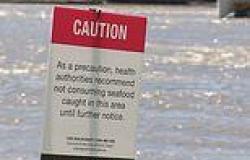1948-70 - Nearly half a million people moved from the Caribbean to Britain, which in 1948 faced severe labour shortages in the wake of the Second World War. The immigrants were later referred to as 'the Windrush generation'.
Working age adults and many children travelled from the Caribbean to join parents or grandparents in the UK or travelled with their parents without their own passports. Since these people had a legal right to come to the UK, they neither needed nor were given any documents upon entry to the UK, nor following changes in immigration laws in the early 1970s. Many worked or attended schools in the UK without any official documentary record of their having done so, other than the same records as any UK-born citizen.
2012 - The hostile environment policy, which came into effect in October 2012, comprises administrative and legislative measures to make staying in the UK as difficult as possible for people without 'leave to remain', in the hope that they may 'voluntarily leave'. The policy was widely seen as being part of a strategy of reducing UK immigration figures to the levels promised in the 2010 Conservative Party Election Manifesto.
Measures introduced by the policy include a legal requirement for landlords, employers, the NHS, charities, community interest companies and banks to carry out ID checks and to refuse services if the individual is unable to prove legal residence in the UK. Landlords, employers and others are liable to fines of up to £10,000 if they fail to comply with these measures.
The policy led to a more complicated application process to get 'leave to remain' and encouraged voluntary deportation.The policy coincided with sharp increases in Home Office fees for processing 'leave to remain', naturalisation and registration of citizenship applications.
2013 - The Home Office received warnings that many Windrush generation residents were being treated as illegal immigrants and that older Caribbean born people were being targeted. The Refugee and Migrant Centre in Wolverhampton said their caseworkers were seeing hundreds of people receiving letters from Capita, the Home Office's contractor, telling them that they had no right to be in the UK, some of whom were told to arrange to leave the UK at once. Roughly half the letters went to people who already had leave to remain or were in the process of formalising their immigration status.
People considered illegal were sometimes losing their jobs or homes as a consequence of having benefits cut off and some had been refused medical care under the National Health Service (NHS), some placed in detention centres as preparation for their deportation, some deported or refused right to return to the UK from abroad.
Caribbean leaders had put the deportations on the agenda at the Commonwealth meeting in Sri Lanka and in April 2016 Caribbean governments told Philip Hammond, the foreign secretary, that immigrants who had spent most of their lives in the UK were facing deportation and their concerns were passed on at the time to the Home Office. Shortly before the Commonwealth Heads of Government Meeting in April 2018, twelve Caribbean countries made a formal request for a meeting with the British Prime Minister to discuss the issue, which was rejected by Downing Street.
2017 - Newspapers reported that the British government had threatened to deport people from Commonwealth territories who had arrived in the UK before 1973, if they could not prove their right to remain in the UK. Although primarily identified as the Windrush generation and mainly from the Caribbean, it was estimated in April 2018 on figures provided by the Migration Observatory at the University of Oxford that up to 57,000 Commonwealth migrants could be affected, of whom 15,000 were from Jamaica. In addition to those from the Caribbean, cases of people affected who had been born in Kenya, Cyprus, Canada and Sierra Leone were identified in the press.
The press coverage accused Home Office agencies of operating a 'guilty until proven innocent' and 'deport first, appeal later' regime; of targeting the weakest groups, particularly those from the Caribbean; of inhumanely applying regulations by cutting off access to jobs, services and bank accounts while cases were still being investigated; of losing large numbers of original documents which proved right to remain; of making unreasonable demands for documentary proof - in some instances, elderly people had been asked for 4 documents for each year they had lived in the UK and of leaving people stranded outside the UK because of British administrative errors or intransigence and denial of medical treatment.
Other cases covered in the press, involved adults born in the UK, whose parents were 'Windrush' immigrants and who had been threatened with deportation and had their rights removed, because they were unable to prove that their parents were legally in the UK at the time of their birth.
The Home Office and British government were further accused of having known about the negative impacts that the 'hostile environment policy' was having on Windrush immigrants since as early as 2013 and of having done nothing to remedy them.
2018 - Questions were raised in Parliament about individual cases that had been highlighted in the press. On March 14, when Opposition Leader Jeremy Corbyn asked May about an individual who had been refused medical treatment under the NHS during Prime Minister's Questions in the House of Commons, Theresa May initially said she was 'unaware of the case', but later agreed to 'look into it'. Parliament thereafter continued to be involved in what was increasingly being referred to as 'the






